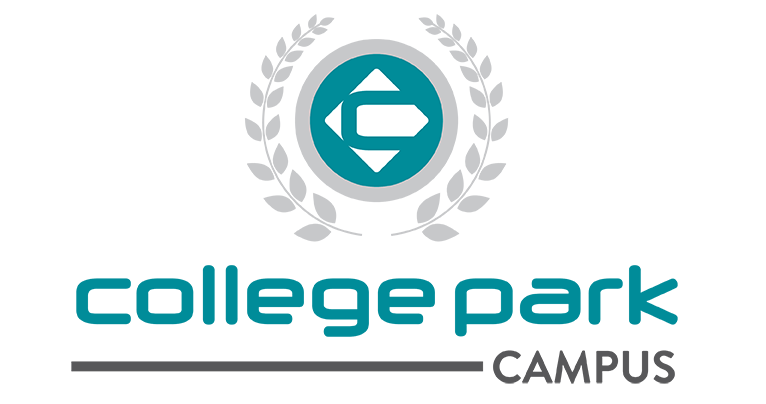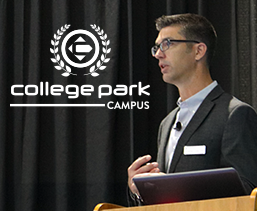
Advance Your Education
College Park Campus offers education, training, and certification opportunities for prosthetists, physical therapists, and other healthcare professionals interested in learning more about the world of prosthetics.
Learn how to optimize outcomes with College Park’s products or earn ABC credits to maintain your board certification.
Learn, Grow, and Win in 2024 with Quarterly Drawings!
We invite you to try one new course every three months to be entered into our quarterly drawings. You could win gift cards, College Park swag, and more! Simply review the courses available, complete the program that most interests you, and we’ll handle the rest. The College Park education team will randomly select one winner at the end of each quarter and announce via email and social media. Many of these courses are included in larger CEU program offerings. Get started today!
CEU CUrriculum Offerings
All courses must be viewed in a learning plan and the assessment must be passed with a score of 80% or above. The College Park Campus library is routinely growing, so stay tuned for more!
CEU credits available with ABC.
| CEU Program | Description | CEUs |
|---|---|---|
CHOOSING A TRI-AXIAL SOLUTION NEW! |
This course will cover the benefits of multi-axial motion in prosthetic foot design. We will review the history of previous multi-axial designs from College Park. The features, functions, and clinical benefits of the service-free Terrain with integrated Tri-Axial technology from College Park. | 3.25 |
Understanding Microprocessor Knees & the Icon MPK - NEW! |
The learner will be able to describe the features and functions of the Icon MPK from College Park. The purpose, core functions, and main features of the knee will be reviewed, and the user will become familiar with the setup and adjustment of the knee. In addition, the key steps of using the Stride Studio app will be explained including how to log into the app and pair with the Icon. A description of key adjustments and custom modes for the product when using the app will be reviewed. Lastly, documentation guideline and a literature review for MPKs will be discussed. This will include defining medical necessity and functional level, reviewing current and proposed Medicare MPK criteria, and building evidence based MPK clinical documentation according to SOAP note format. | 2.75 |
Benefits of Composite Fusion – Aviator, Scout, and Voyager - NEW! |
The course reviews how College Park has combined the clinical benefits of both carbon fiber and Intelliweave® to blend the best of both worlds with the Aviator, Scout, and Voyager feet. The additional benefits found when combining carbon fiber and Intelliweave® in connection to the three feet will be discussed. The course also reviews the purpose and main design features of the Aviator, Scout, and Voyager products. | 1.75 |
Getting to Know Microprocessor Knees - NEW! |
The learner will identify the most common terms and vocabulary with microprocessor knees and describe how microprocessor knees assist with navigating various surfaces and terrains. The learner will understand how the microprocessor knee works with timing and adjustments. The course will also review documentation needs and reimbursement guidelines for microprocessor knees. | 1.5 |
CLINICAL BENEFITS OF TRI-AXIAL DESIGN |
The learner will review concepts human locomotion and energy relative to force. Design history, theory, and human gait characteristics of tri-axial feet like the Trustep and Venture will be discussed. The learner will understand how prosthetic feet can mimic eccentric, concentric, and isometric contractions. The purpose and main design features of the Terrain and Terrain iW products will be discussed as well. | 2.25 |
COLLEGE PARK MECHANICAL KNEES |
The learner will review concepts in mechanical, pneumatic, and hydraulic prosthetic knee designs. Design criteria and product development will be discussed. The learner will gain a better understanding of the proper patient selection for each product type. Specific design features of each College Park knee will be discussed as well as adjustments to achieve optimal patient outcomes. | 3.5 |
VERTICAL SHOCK WITH COLLEGE PARK |
This course will cover the benefits and clinical perspectives of vertical shock. It also identifies and reviews the different methods of vertical shock. In addition to vertical shock information, the course provides an overview of the Aviator and Voyager feet from College Park and how they both integrate and benefit from vertical shock. | 1.75 |
ELEVATED VACUUM & THE CELSUS-TEMPO IVT FEET FROM COLLEGE PARK |
This course will provide basic vacuum fundamentals, the benefits of elevated vacuum, and a detailed overview of the Celsus-Tempo iVT feet from College Park. There is discussion of terminology related to vacuum, the basis of elevated vacuum at the cellular level, and the historical perspective on vacuum. | 1.5 |
Exploring Basic Lower Limb Solutions for K2 with College Park - NEW! |
This course will cover anatomical and prosthetic terms. A review of gait and normal human locomotion as it relates to prosthetics will be presented. The functionality of materials proprietary to College Park product will be described. There is a discussion of the difference between Impact level and Activity level in K2 feet. A review of K2 foot products available from College Park with indications of clinical benefits and patient selection criteria for each product. | 6.25 |
EXPLORING ADVANCED LOWER LIMB SOLUTIONS FOR K3 WITH COLLEGE PARK - NEW! |
This course will review sources and solutions for finding noises in prosthetic systems, gait-matching as it relates to choosing the correct firmness in a College Park foot, and impact vs activity level in K3 feet. In addition, we will present the clinical benefits of iST technology and how these feet differ from most in the industry. Features, functions, and selection criteria will be presented for most of the College Park K3 product line. | 7.75 |
RENEWED DO THE TWIST WITH COLLEGE PARK: TORSION CAPABILITIES |
This detailed new course reviews the benefits of torsion capabilities–review torsional adapters' history and design as well as the clinical benefits. Learn to identify the anatomical motions at the ankle and to explain the socket pressures due to torsional activities. Gain a better understanding of College Park’s torsional design along with the purpose and design features of both Voyager and Orbit feet from College Park. | 2 |
Canadian MCE Credit Programs
All courses must be viewed in a learning plan and the assessment must be passed with a score of 80% or above. The College Park Campus library is routinely growing, so stay tuned for more!
MCE credits available with OPC.
| MCE Program | Description | MCE Credits |
|---|---|---|
Understanding Microprocessor Knees & the Icon MPK - NEW! |
The learner will be able to describe the features and functions of the Icon MPK from College Park. The purpose, core functions, and main features of the knee will be reviewed, and the user will become familiar with the setup and adjustment of the knee. In addition, the key steps of using the Stride Studio app will be explained including how to log into the app and pair with the Icon. A description of key adjustments and custom modes for the product when using the app will be reviewed. Lastly, documentation guideline and a literature review for MPKs will be discussed. This will include defining medical necessity and functional level, reviewing current and proposed MPK criteria, and building evidence based MPK clinical documentation according to SOAP note format. | 2.75 |
BENEFITS OF COMPOSITE FUSION - NEW! |
This MCE course focuses on the benefits of both fiberglass and carbon fiber composite materials. Topics include the specific manufacturing process of College Park's Intelliweave glass-based composite. Participants will have a better understanding of the clinical benefits of both carbon fiber and glass-based composites. They will also have a better understanding of why College Park has created products with both materials in prosthetic feet. | 1.75 |
College Park Mechanical Knees - NEW! |
This MCE course reviews concepts in mechanical, pneumatic, and hydraulic prosthetic knee designs. Design criteria and product development will be discussed. The learner will gain a better understanding of the proper patient selection for each product type. Specific design features of each College Park knee will be discussed as well as adjustments to achieve optimal patient outcomes. | 3.5 |
General Class Offerings
Guardian, Victor and Capital Knee
This course features, functions adjustments, and foot selection for the Guardian, Victor, and Capital knees. The first section focuses on the Guardian's manual lock, competitors, and adjustments. The second section focuses on the appropriate patient, key features, and adjustments specific to the Victor knee. The final section introduces the Capital hydraulic knee from College Park.
Capital Hydraulic Knee
This course provides an overview of the features and functions of the Capital hydraulic knee from College Park. The main focus of the course is product functionality, including stance phase, swing phase, stumble recovery, and trigger point adjustment. This detailed course concludes with product specifications and billing codes.
M-Finger 2.0, Titan Flex, Pediatric, and Hold-It
This course reviews several products including the M-Finger 2.0, Titan products, pediatric options, and the Hold-It device. Following the overview, learn about each product’s functionality, main selling features, and detailed images.
To learn more about CEUs and about College Park Campus check out our FAQ section.



